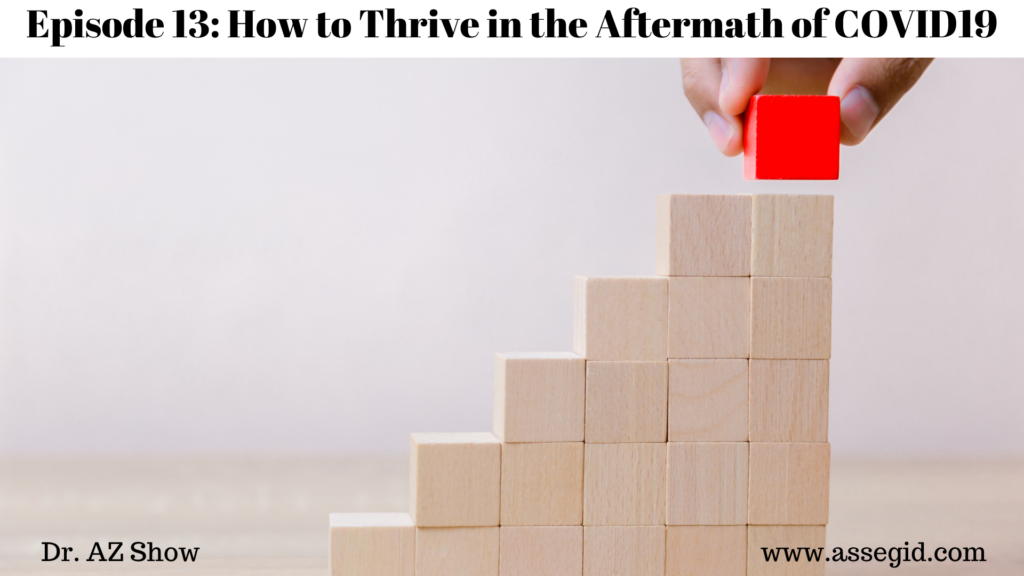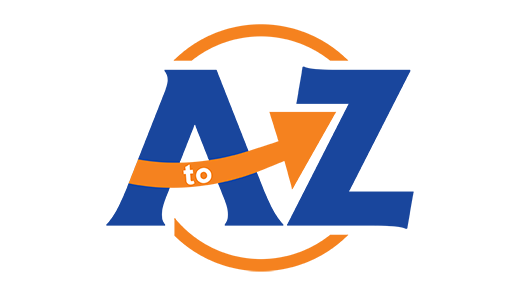10 May How to Thrive in the Aftermath of COVID19
We all have been facing crises, some personal while others corporate level. We aren’t new to a crisis. It was and it’ll continue to co-exist with us.
At this moment, we are dealing with one of the toughest crises in human history. So far, it broke our hearts by claiming hundreds of thousands of precious souls. It made millions sick and out of work.
What is more? We don’t know what will happen tomorrow, next week, nor next month for that matter because of the crisis’s direct and indirect impacts.
Unlike the frequent crises we individually and corporately face, the COVID19 related crisis is different only because it has a global magnitude. Even then, this crisis isn’t new. We had crises like this in history. Though each one of these crises with global magnitude and scope was different in terms of their causes and impacts, they all shared the same characteristics, which COVIDE19 crisis also shares.
As I discussed in the previous blogs, a crisis is an extreme form of unplanned change. It is:
- Sudden, or at least, it catches us by surprise.
- We don’t have direct control
- It feels like we are helpless and victims.
- And so on.
Another nature of crisis many of us forget once we are under its attack is the feeling of it is here to stay. We’re so stressed out and pressured dealing with the direct and indirect consequences of this crisis, we may fail to stop for a moment and acknowledge that it’s not permanent. It will go away at the end of the day.
What we know from history is that all crises came and gone, they are now just history. The COVID19 related crisis too won’t be exceptional. What we don’t know yet is when it is going to evaporate or at least stop savaging the lives of precious people. Otherwise, this too shall pass.
The question is, if it is here not to stay, what are we doing right now as we deal with its immediate impacts to prepare ourselves and go beyond just surviving this crisis? How are we spending our time right now? Are we dividing it between spending on immediate and future needs? Are we strategic and positioning ourselves not only to outlast if it prolongs but also to thrive in the aftermath?
Today, I want to use this opportunity to emphasize the importance of reminding ourselves again and again that this crisis isn’t here to stay. I also want to ask you this question and please answer it adequately: What should you be doing right now in the middle of this crisis, first, to outlast it and then to position yourself (your career, organization, and community) to thrive in its aftermath?

Unfortunately, by its nature, crisis pressures many to focus on survival neglecting the future altogether. Yes, we must first, individually, and corporately survive. Otherwise, there may not be any future at all. However, while surviving, it is important to prepare for the new normal.
Ask yourself:
- What kind of place do you and/or your organization/community will have in the new normal?
- Will you be relevant?
- Will you be competitive?
- Will you have leverage and competitive advantages?
We have to be proactive to create a future where we have a meaningful place in the new normal. There are certain things within our control right in the middle of doing our best to survive this crisis. Though we may not have lots of control during a crisis like this, there are some within our scope and means. We can do something while dealing with the direct and indirect impacts of COBID19 to survive this difficult time so as to have a favorable future when it all ends. You can do so many things but, the bare minimum, I suggest three things that are within your reach:
- Reform. This crisis has shown all of us individually and collectively our weak links, where we failed in the past. This is time to make some changes, really deep changes. Of course, you should not change what must not change. The main things such as who you are, your mission, and what you stand for- your values, must survive. The changes you should execute in the different aspects of your life, career, and organization should enable you to deal with past weaknesses and limitations that exposed you or made you vulnerable during this crisis. That way, not only you outlast this crisis in the NOW but it also positions you to deal with the next unforeseeable crises with more resilience and capabilities. You should be in a better position than where you were when this crisis began.
- Grow. You must use the downtime right now to grow individually and collectively. You have to become better and stronger, which in turn, equips you to outlast if in case this crisis stays longer. It also positions you to have a more promising future in the long term. Grow holistically.
- Innovate. When you reform, you are trying to deal with past inadequacies to survive. When you grow, you are building your current capabilities to outlast. Though these are great and will definitely empower you to outlast and even thrive in the aftermath, you need to innovate to create your own future in the aftermath through innovation. Don’t bury your head in the sand. Don’t attempt to just keep your head above the water. Unleash your creative genius! This is a golden chance to be creative and dictate the future and then lead it.
Episode 13 is the last one to focus solely on the crisis. I’ll have another theme for the coming couple of episodes. Of course, I’ll definitely provide some leadership tips in these episodes that may empower you during this hard time.
In Episode 13, I talked about how to thrive in the aftermath. I’ve explained the above three approaches and gave some interesting stories one from the US- Kodak vs. Fuji, and another one from Ethiopia- Ethiopian Airlines.
Below is the video clip. Watch it and let me know your thoughts.
If you haven’t yet, make sure to subscribe to this channel so that you won’t miss future episodes. Like, leave your comments, and share it with those who may benefit from the show.
If you prefer to listen to the podcast version, here you go:
If you haven’t yet, connect with me on social media. Go to www.assegid.com and on the top left side, you will find the social media icons. I post multiple times a day inspirational and informative messages. Engage with me on social media and let the learning continues until we see each other again with another episode.
By the way, I also released an online course ‘Overcoming First-Timer Syndrome’ for Team Leads, Project Managers, Supervisors, and Business Owners. The course has 11 modules. Each module has 30 – 45 minutes of video teaching and a worksheet that summarizes the main discussion points, learning objectives plus lots of assignments. There are also some downloadable samples and templates. To learn more about the course, check out this page: https://www.successpws.com/first-timer
